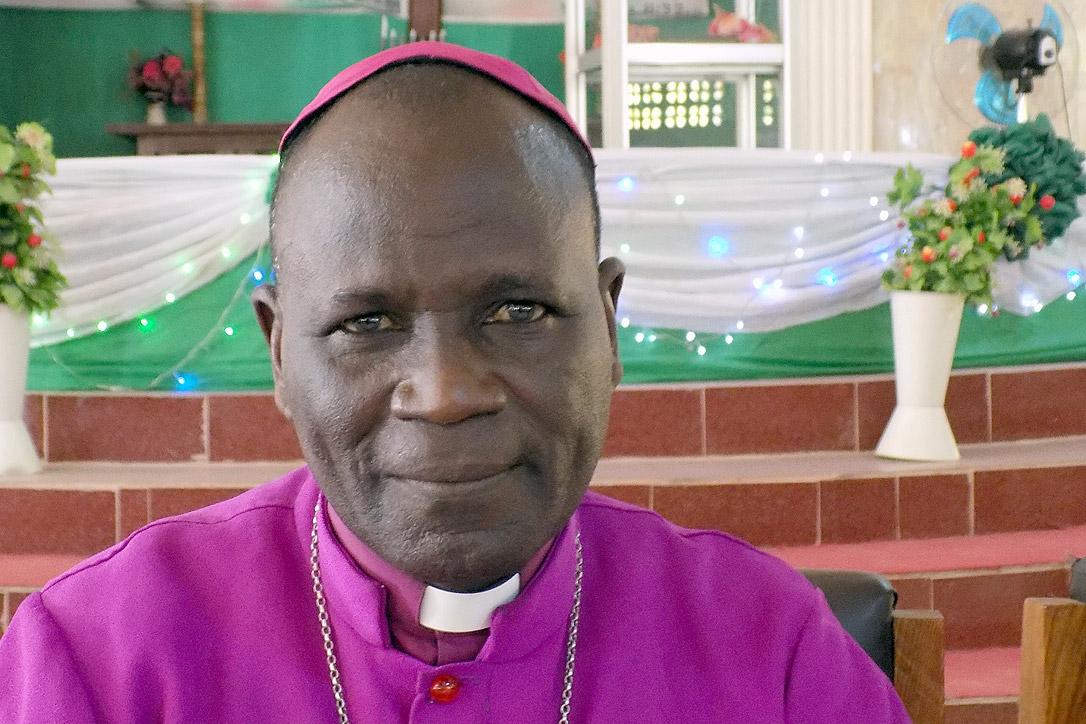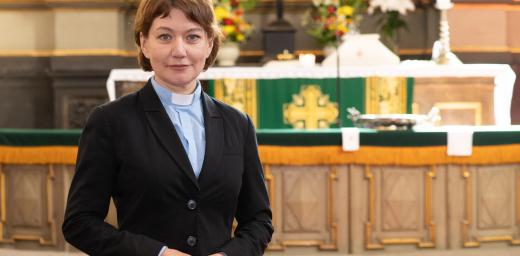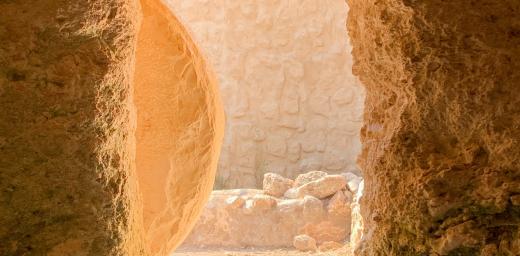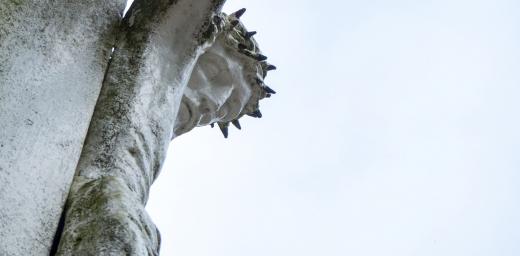Nigerian Lutheran Archbishop Seeks Critical Global Solidarity in Fight against Boko Haram

LCCN Archbishop Dr Nemuel A. Babba. Photo LCCN/Felix Samari
Nemuel Babba Reflects on Restoring Trust and Citizens’ Right to Protection
(LWI) – In this interview with Lutheran World Information (LWI), Nigerian Lutheran Archbishop Dr Nemuel A. Babba urges a “stronger global Christian voice against the Boko Haram violence” and “solidarity to help restore trust and relationships” between Christians and Muslims in the country. LCCN’s congregations are located mainly in Northern Nigeria.
How are communities and churches in northeastern Nigeria directly affected by the increasing violence by Boko Haram?
Firstly, as the leader of the Lutheran Church of Christ in Nigeria (LCCN), my heart goes out to the tens of thousands of families—Christians, Muslims and other faiths—in the northeast, who have lost loved ones in the continuing spate of violent attacks on villages by the Boko Haram group. The senseless killings in early January and the razing down of homes, churches, mosques, schools and businesses in the town of Baga in Borno state, showed yet again, the callous nature of Boko Haram and the helpless situation for citizens of Nigeria who cannot defend themselves.
The LCCN like many other Christian and Muslim communities in the states of Borno, Yobe and here in Adamawa, has suffered huge losses since Boko Haram began its armed attacks in 2009 with the aim of creating an Islamic state in this part of the country. LCCN’s Arewa and Shall-Holma dioceses are the most severely affected; the bishops had to move out of the diocesan headquarters two months ago. Like thousands of other displaced people, we don’t know when they can go back. Many Lutheran churches and institutions including the Gombi and Arewa cathedrals have been burned down or pillaged. Around 50,000 of our members in Arewa and Shall-Holma had no organized Lutheran worship for the Christmas and New Year seasons because of the violence.
How are churches and Christian communities responding towards those affected?
Simply put, there are tens of thousands of internally displaced persons (IDPs) from the affected states. At the LCCN headquarters’ in Numan, we are hosting around 5,000 IDPs, and many more in families. I am encouraged to see that many of our church members and other Christians, as well as Muslims, have opened their homes to fellow Nigerians fleeing violence. Our goal is not to establish IDP camps, but to work with the local government to support those in need now, and help them to eventually go back home. We continue to mobilize the local community in gathering food, water, clothes and the response is overwhelming. The government and Muslim organizations are helping a lot too—providing mattresses, beddings and so on.
Are you using any ecumenical or interfaith approaches to advocate for those affected?
Yes and No. Yes, because we acknowledge as faith communities that the displaced need our assistance and we have all responded extremely well to this task. As Christians we have also made the government aware that we see Christians as being specifically targeted by Boko Haram. This is not to deny that Muslims are being attacked and killed, but Christians suffer the highest casualties.
Why do I say No? Simply because there is no dialogue with our Muslim brothers and sisters about the intention and impact of Boko Haram. The presence of this militant group has eroded trust between Christians and Muslims here, to the extent that we cannot have open and sincere conversations about this common enemy.
We are going through painful situations at both family and national levels. An example is the situation in many families consisting of Christians and Muslims. Recently one of four Christian brothers welcomed to his home their sister, who is Muslim, as she and her family had fled attacks. But within days, he asked her to seek alternative refuge because he could not cope with her open criticism and disregard for Christians. Yet her children remained with their Christian uncle and cousins. How then, do we heal and restore such relationships in which a ‘brother’s keeper’ has literally turned into the brother’s tormentor because of extreme religious ideals? We no longer trust some of our Muslim brothers and sisters, as we don’t know if they are saying the truth about wanting to get rid of Boko Haram. Similar dynamics can be found in government, political parties and armed forces. The enemy is fellow Nigerians, and it is extremely difficult to fight this enemy, and restore trust in this multi-faith, multi-ethnic nation and its families.
How can the global Lutheran and Christian communions express their solidarity?
It needs to be stated that Nigerian Christians are angry, as we are the most affected by the Boko Haram atrocities. We do not hear loudly enough the strong voice of fellow Christians around the world speaking out against this terrorism that is directed at those of us living in the northeast. Being bold about our solidarity is something Christians all over the world need to learn. We feel that enough is not being done to sustain the urgency to stop Boko Haram’s terrorism.
This is also not the time for the usual approach to interfaith dialogue in Nigeria, in spite of its positive contribution to social cohesion in the country. We must move a notch higher from presenting conference papers about co-existence, with everybody trying to defend their religion. We have to critically look again and talk sincerely about the way Christians and Muslims relate to each other, and table these hard truths and horrendous facts. We need solidarity from the global Christian community to do this.
What intervention can the international political community provide?
We as Nigerian Christians acknowledge the many voices out there highlighting the evils committed by Boko Haram. But we also know the history of past civil wars in this country: politicians who were rejected by voters decided to make the country ungovernable through armed insurgency. As Christians, we promote peace, but we cannot also simply stand by and watch as our people are being wiped out in senseless killings. We are citizens of this country and we cannot continue running helter-skelter because of Boko Haram. We have the right to defend ourselves and when pushed to the worst, the alternative to peace can only be disastrous for a country of more than 170 million people.
Despite its shortcomings, the Nigerian government is trying its best to stop the violence but it needs encouragement and the genuine support of the international community. Because we desire peace, especially as the country goes into elections in February, we urge again the support of the international community.
We especially ask the LWF and the entire Lutheran communion to continue praying for us.
(Archbishop Dr Nemuel A. Babba heads the LCCN with more than 2.2 million members in its nine dioceses mainly in Northern Nigeria. It is one two LWF member churches in Nigeria, and it joined the Lutheran communion in 1961.)





